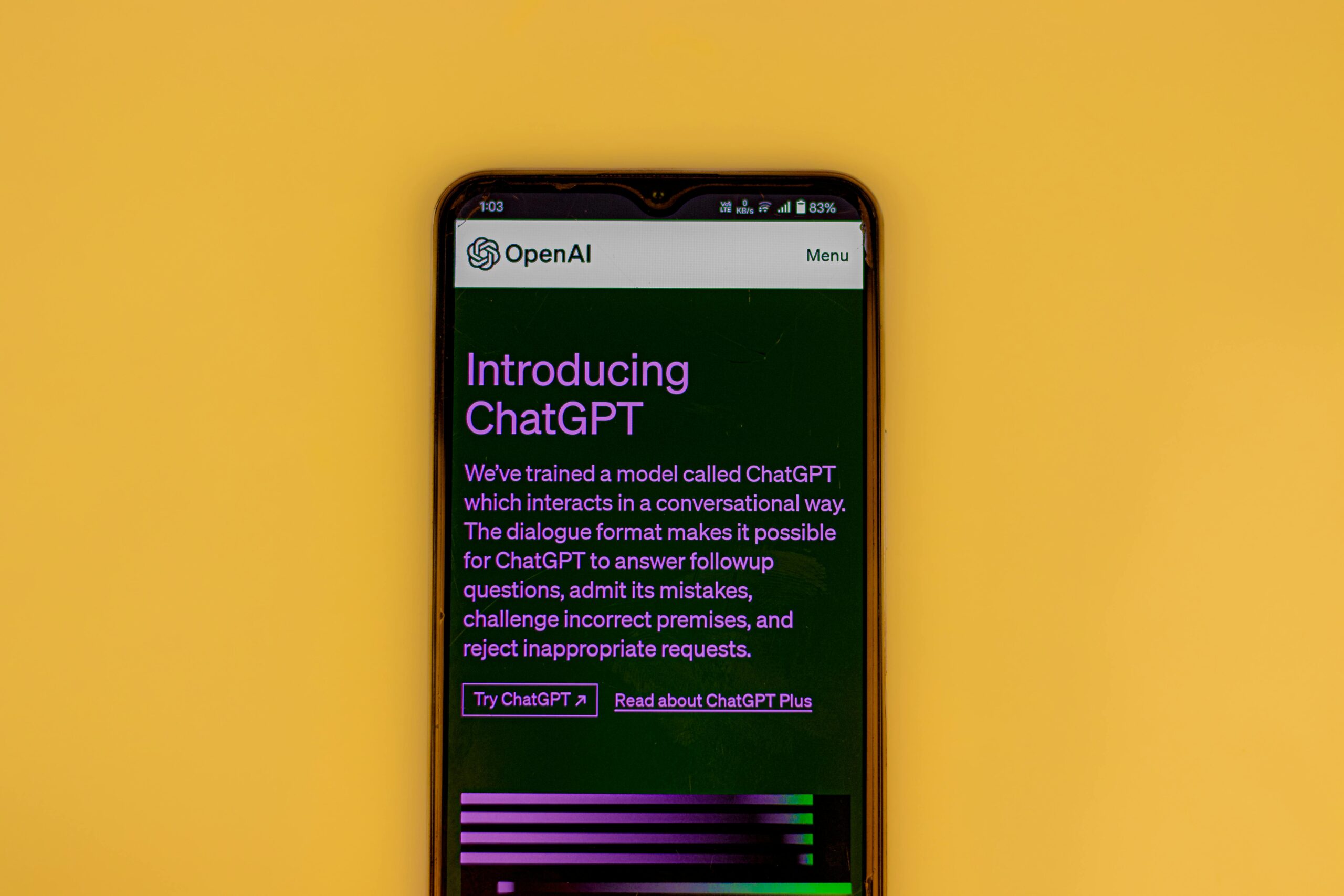Introduction
In today’s digital age, artificial intelligence (AI) has become increasingly prevalent, revolutionizing the way we interact with technology. OpenAI’s ChatGPT is a prime example of cutting-edge AI technology, offering users the ability to engage in natural language conversations with a machine learning model. However, many individuals may be unaware that accessing ChatGPT is possible without the need for an account. In this guide, we will delve into the methods and benefits of accessing ChatGPT without an account.
Understanding ChatGPT
Before delving into the specifics of accessing ChatGPT without an account, it’s essential to understand what ChatGPT is and how it functions. Developed by OpenAI, ChatGPT is an advanced language model trained on vast amounts of text data. It leverages this training to generate human-like responses to text inputs, making it incredibly versatile for a wide range of applications, including natural language processing, chatbots, and more.
Accessing ChatGPT without an Account
1. Utilizing OpenAI’s API
One of the most efficient methods of accessing ChatGPT without an account is through OpenAI’s API. By leveraging the API, developers can integrate ChatGPT’s functionality directly into their applications, websites, or services. This allows users to interact with ChatGPT seamlessly without the need for individual accounts. Additionally, the API provides extensive documentation and support, making integration straightforward for developers of all skill levels.
2. Exploring Third-Party Platforms
In addition to OpenAI’s API, several third-party platforms offer access to ChatGPT without requiring users to create accounts. These platforms often provide user-friendly interfaces for interacting with ChatGPT, making it accessible to individuals without programming knowledge. Users can simply visit these platforms via their web browsers and start engaging with ChatGPT immediately.
Benefits of Accessing ChatGPT without an Account
1. Convenience
Accessing ChatGPT without the need for an account offers unparalleled convenience for users. Whether seeking quick answers to questions, generating creative content, or engaging in conversation, users can do so effortlessly without the hassle of account creation or login procedures.
2. Accessibility
By removing barriers such as account creation, accessing ChatGPT without an account promotes inclusivity and accessibility. Users from all walks of life can benefit from the technology without facing potential obstacles associated with account management.
3. Privacy
For individuals concerned about privacy and data security, accessing ChatGPT without an account provides peace of mind. Without the need to create accounts or provide personal information, users can interact with ChatGPT anonymously, safeguarding their privacy in the process.
Conclusion
In conclusion, accessing ChatGPT by OpenAI without an account is both feasible and advantageous. By leveraging OpenAI’s API or exploring third-party platforms, users can harness the power of ChatGPT seamlessly and without the need for cumbersome account creation processes. From convenience and accessibility to privacy and security, the benefits of accessing ChatGPT without an account are clear. As AI technology continues to evolve, ensuring accessibility and ease of use for all users remains paramount.
Exploring Advanced Features of ChatGPT
Beyond its basic functionality, ChatGPT offers a plethora of advanced features that enhance its usability and effectiveness. Let’s delve into some of these features:
1. Custom Prompting
One notable feature of ChatGPT is its ability to respond to custom prompts provided by users. By tailoring prompts to specific contexts or queries, users can elicit more relevant and insightful responses from ChatGPT. This feature is particularly useful for tasks such as content generation, brainstorming, or problem-solving.
2. Fine-Tuning
For users seeking to optimize ChatGPT‘s performance for specific use cases or domains, the fine-tuning feature is invaluable. By fine-tuning the model on domain-specific data or adjusting parameters, users can enhance the accuracy and relevance of ChatGPT’s responses. This customization enables ChatGPT to better understand and generate content tailored to individual needs.
3. Multi-Turn Conversations
Another advanced feature of ChatGPT is its support for multi-turn conversations. Unlike traditional chatbots that operate on a single-turn basis, ChatGPT can maintain context across multiple interactions, facilitating more natural and engaging conversations. This capability is particularly beneficial for applications such as customer support, tutoring, or virtual assistants.
Applications of ChatGPT without an Account
The versatility of ChatGPT extends beyond its basic usage, opening up a wide range of applications for users without the need for an account:
1. Content Creation
Whether writing articles, blog posts, or social media captions, ChatGPT can serve as a valuable tool for content creators. By generating ideas, providing insights, or even assisting with drafting, ChatGPT enables users to streamline the content creation process without the constraints of account requirements.
2. Research and Information Retrieval
When conducting research or seeking information on various topics, ChatGPT can act as a knowledgeable assistant. Users can pose questions, request explanations, or even generate summaries, allowing them to access relevant information quickly and efficiently.
3. Language Learning and Practice
For individuals looking to improve their language skills or practice conversational fluency, ChatGPT offers a supportive environment. Users can engage in dialogue, receive feedback, or explore language nuances, all without the need for formal language learning platforms or account registrations.
Conclusion
In summary, the advanced features and diverse applications of ChatGPT make it a valuable resource for users across various domains. Whether seeking assistance with content creation, research, language learning, or beyond, ChatGPT offers unparalleled convenience, accessibility, and utility without the need for user accounts. As technology continues to evolve, ChatGPT remains at the forefront of AI innovation, empowering users to accomplish their goals with ease and efficiency.
Leveraging ChatGPT for Business Applications
Beyond individual use cases, ChatGPT also holds significant potential for businesses across various industries. Let’s explore how organizations can leverage ChatGPT to enhance their operations and customer interactions:
1. Customer Support and Service
One of the most prominent applications of ChatGPT in business is in the realm of customer support and service. By integrating ChatGPT into their websites or applications, businesses can offer round-the-clock assistance to customers without the need for human agents. ChatGPT can handle common queries, provide information, and even troubleshoot issues, thereby improving customer satisfaction and reducing support costs.

2. Personalization and Recommendations
ChatGPT’s ability to understand and respond to user inputs makes it an invaluable tool for personalization and recommendations. Businesses can leverage ChatGPT to analyze user preferences, behavior, and historical data to offer tailored recommendations for products, services, or content. This personalized approach enhances the user experience and increases engagement and conversion rates.
3. Market Research and Insights
Businesses can also use ChatGPT to gain valuable market insights and conduct research. By analyzing conversations, feedback, and interactions with users, ChatGPT can provide valuable data and insights into consumer preferences, trends, and sentiments. This information enables businesses to make informed decisions regarding product development, marketing strategies, and customer targeting.
Implementation Strategies for ChatGPT in Business
1. Integration with Existing Systems
To maximize the benefits of ChatGPT, businesses should integrate it seamlessly with their existing systems and processes. Whether it’s integrating with customer relationship management (CRM) software, e-commerce platforms, or internal databases, ensuring compatibility and interoperability is essential for smooth operations.
2. Training and Monitoring
Businesses should invest in training ChatGPT on domain-specific data and continuously monitor its performance to ensure accuracy and relevance. Regular updates, feedback loops, and quality control measures are essential to maintaining ChatGPT’s effectiveness and reliability over time.
3. Ethical Considerations
As with any AI technology, businesses must consider ethical implications when deploying ChatGPT. This includes ensuring transparency, accountability, and fairness in its use, as well as safeguarding user privacy and data security. Implementing robust ethical guidelines and compliance measures is crucial for building trust and mitigating risks.
Conclusion
In conclusion, ChatGPT offers businesses a powerful tool for enhancing customer interactions, personalizing experiences, and gaining valuable insights. By leveraging ChatGPT strategically and ethically, organizations can improve efficiency, drive innovation, and stay ahead in today’s competitive landscape. As AI technology continues to advance, ChatGPT remains a valuable asset for businesses looking to innovate and thrive in the digital age.









